Betula pendula Tree
Betula pendula Tree
Silver Birch Tree

Betula pendula Tree
Silver Birch Tree


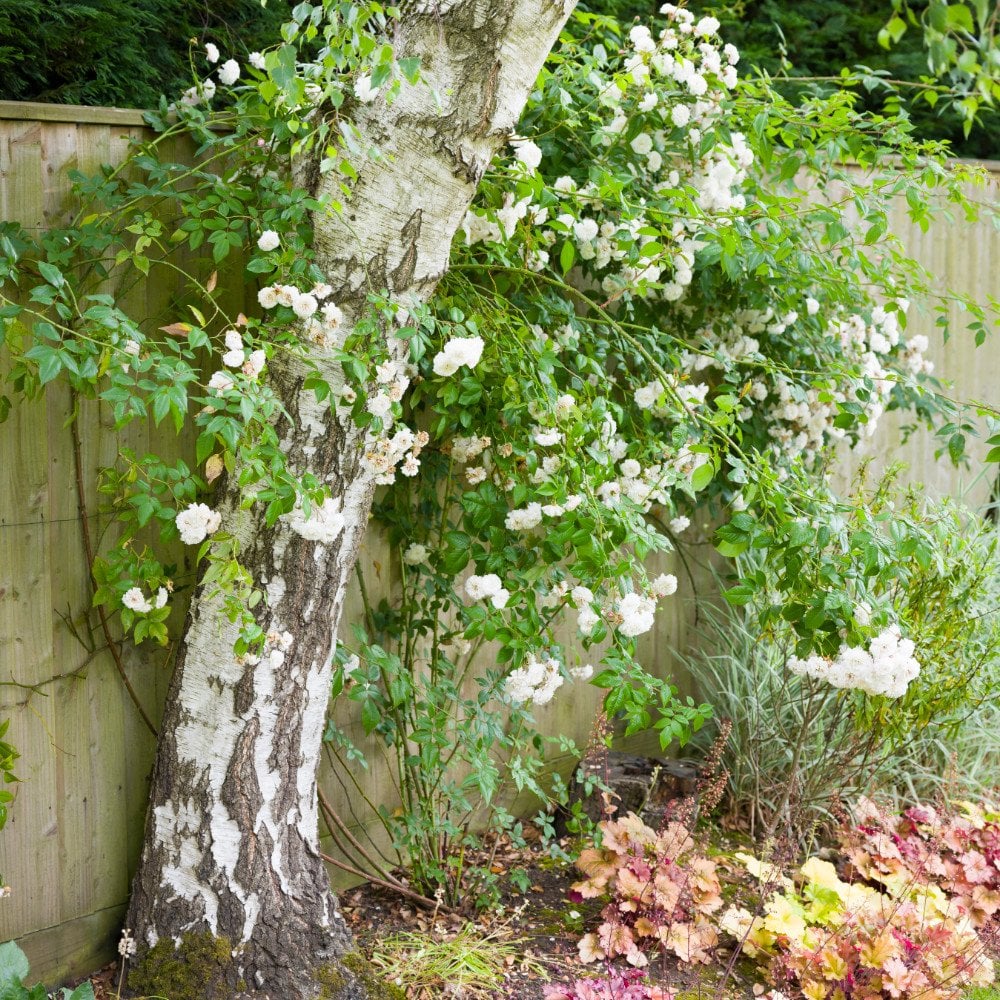
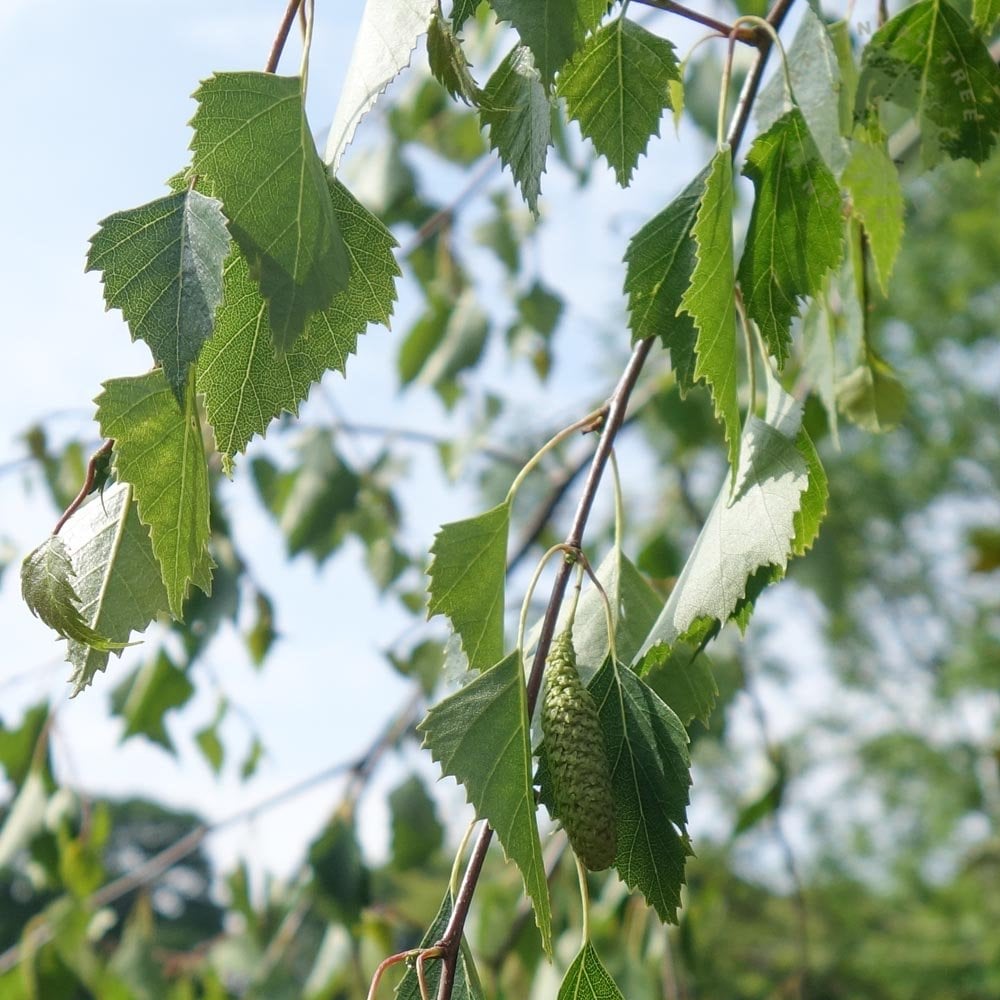
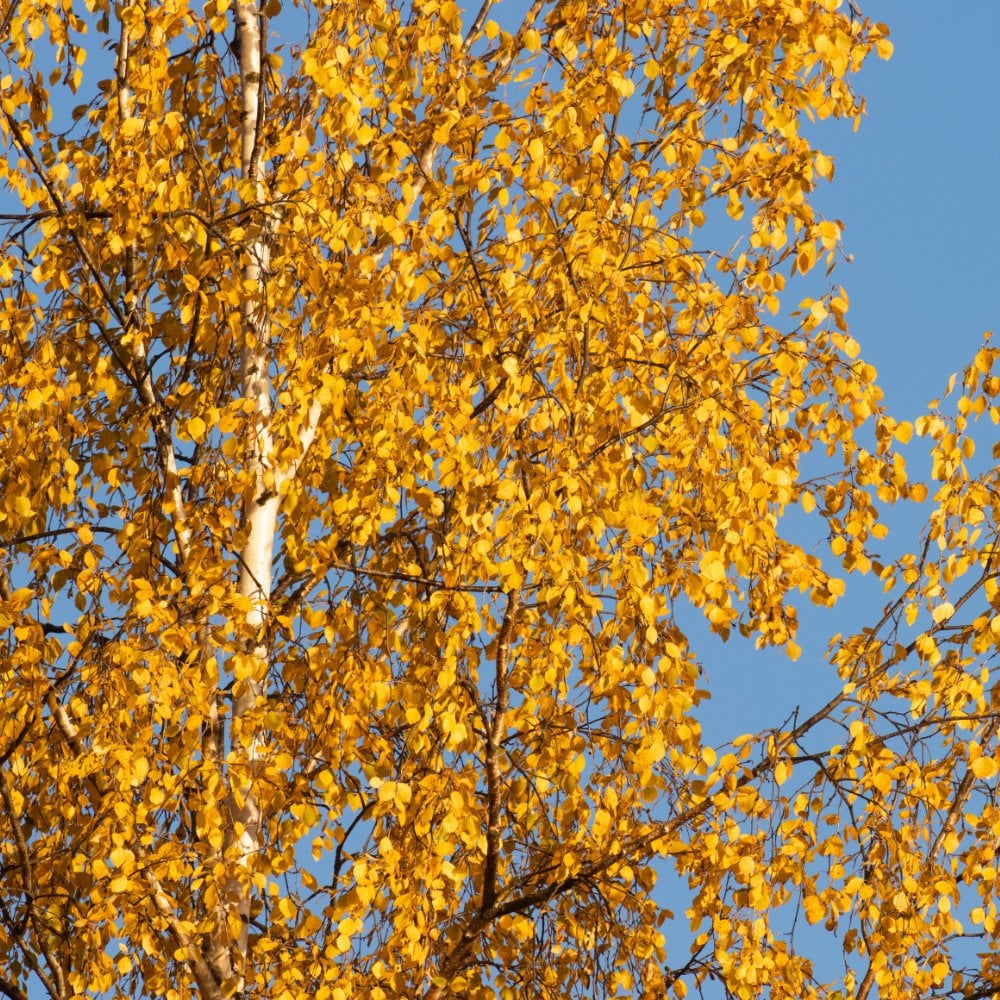
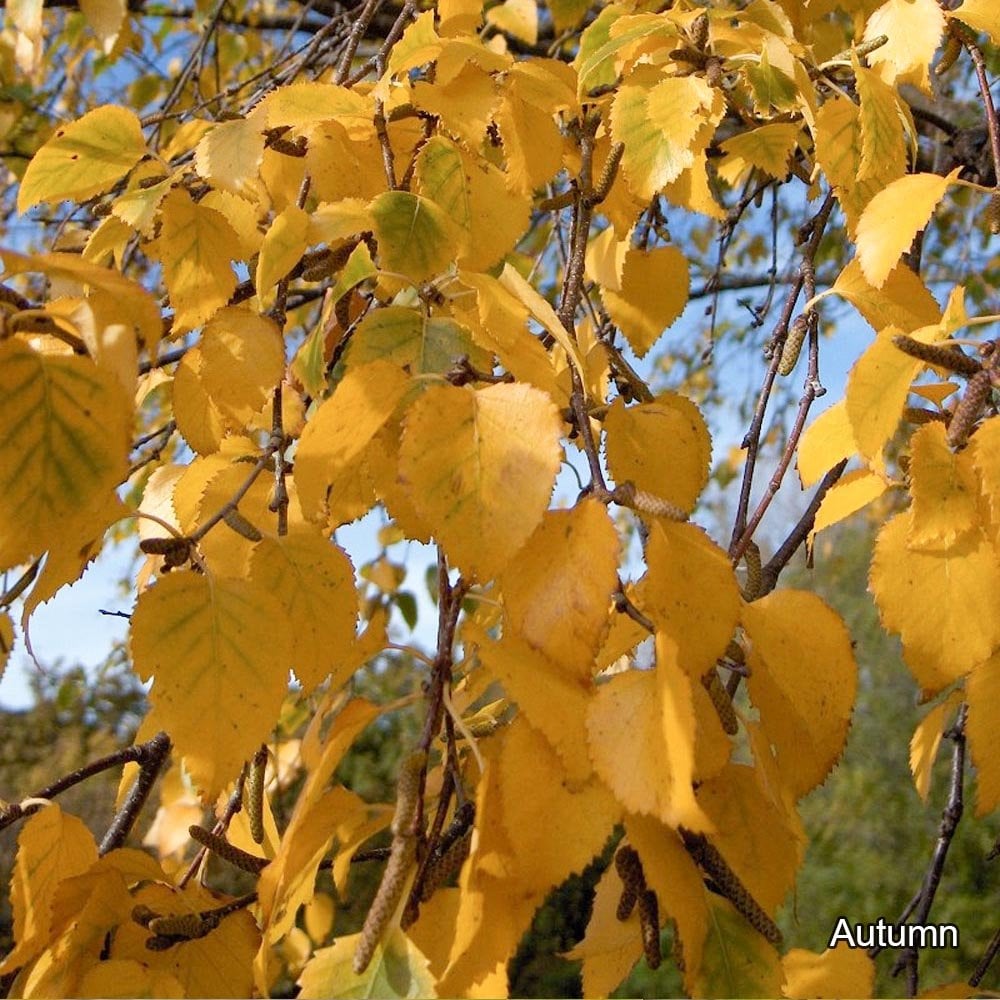
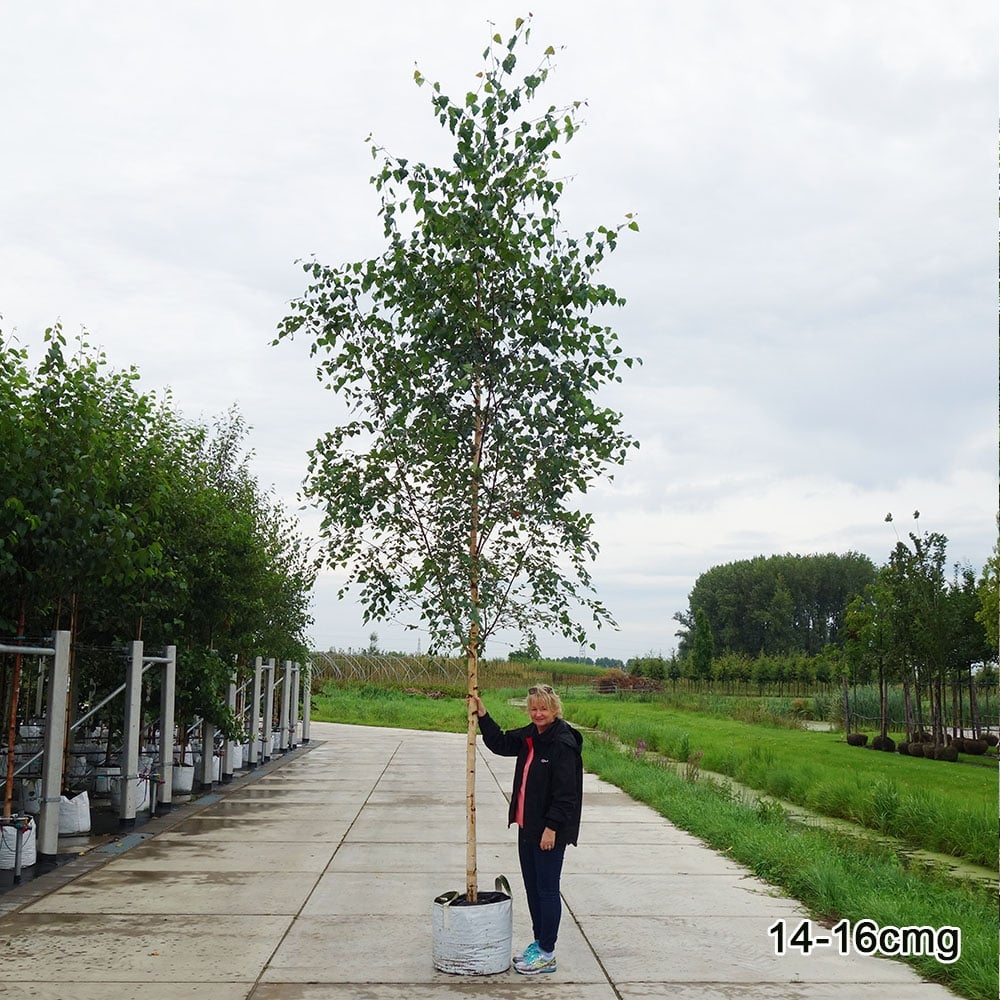


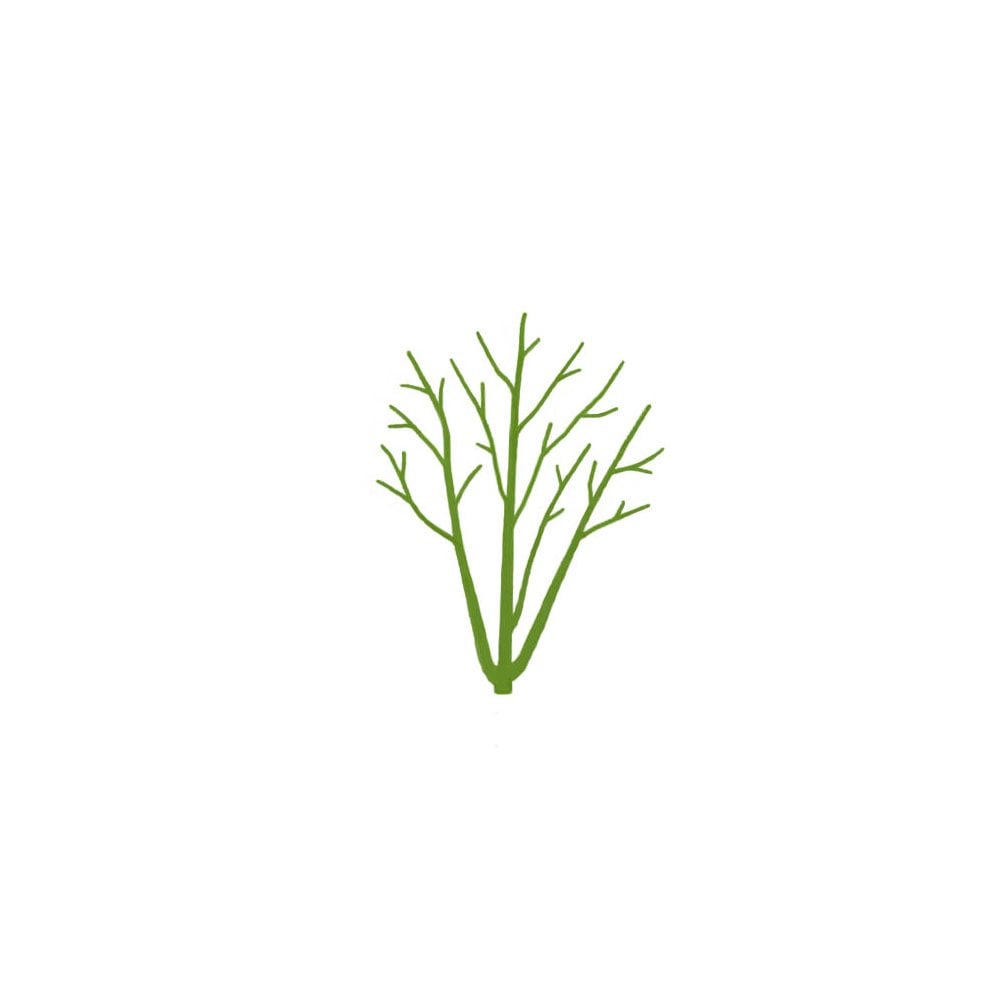
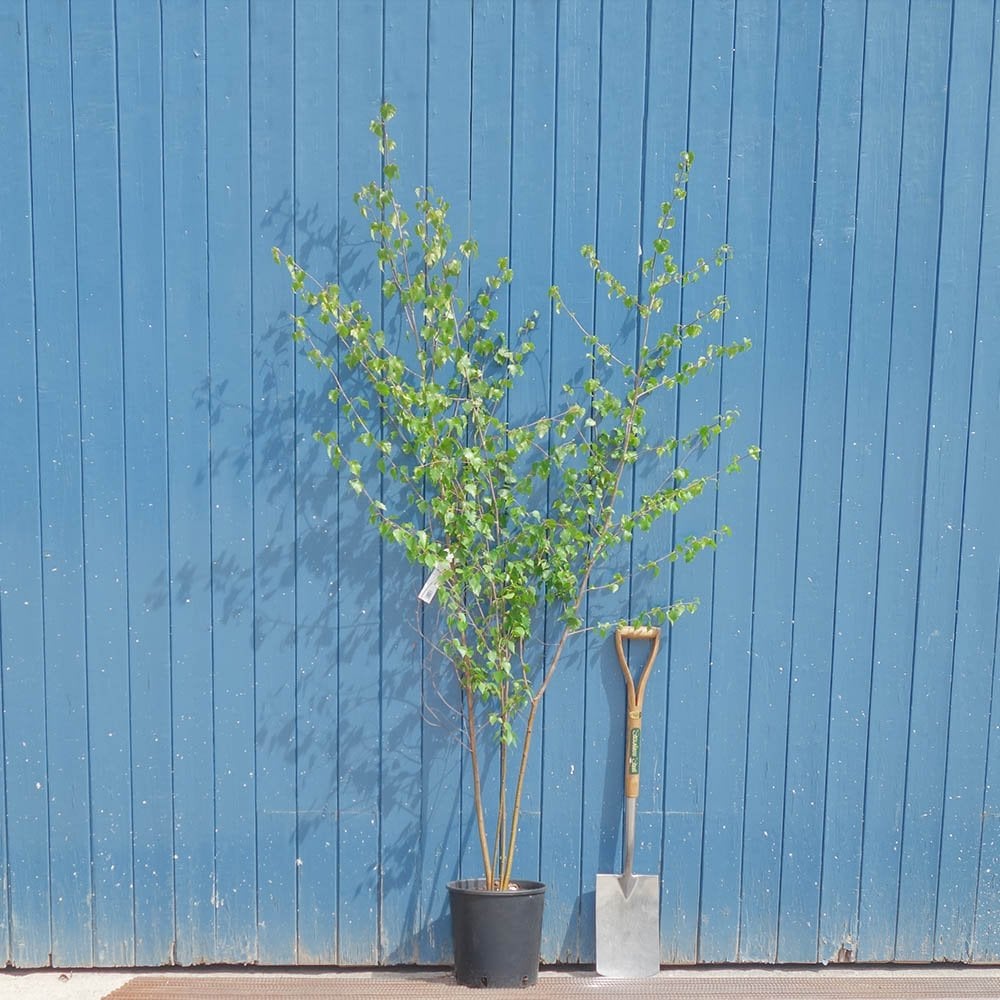
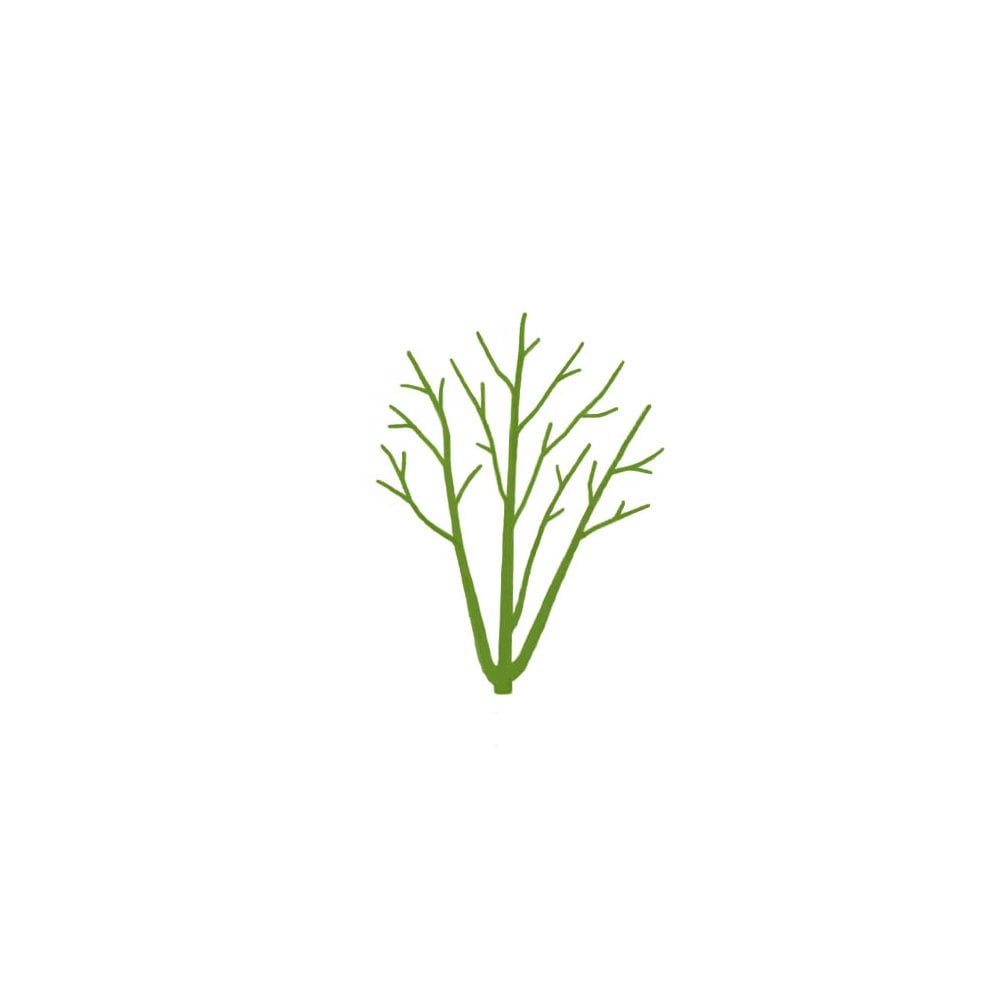
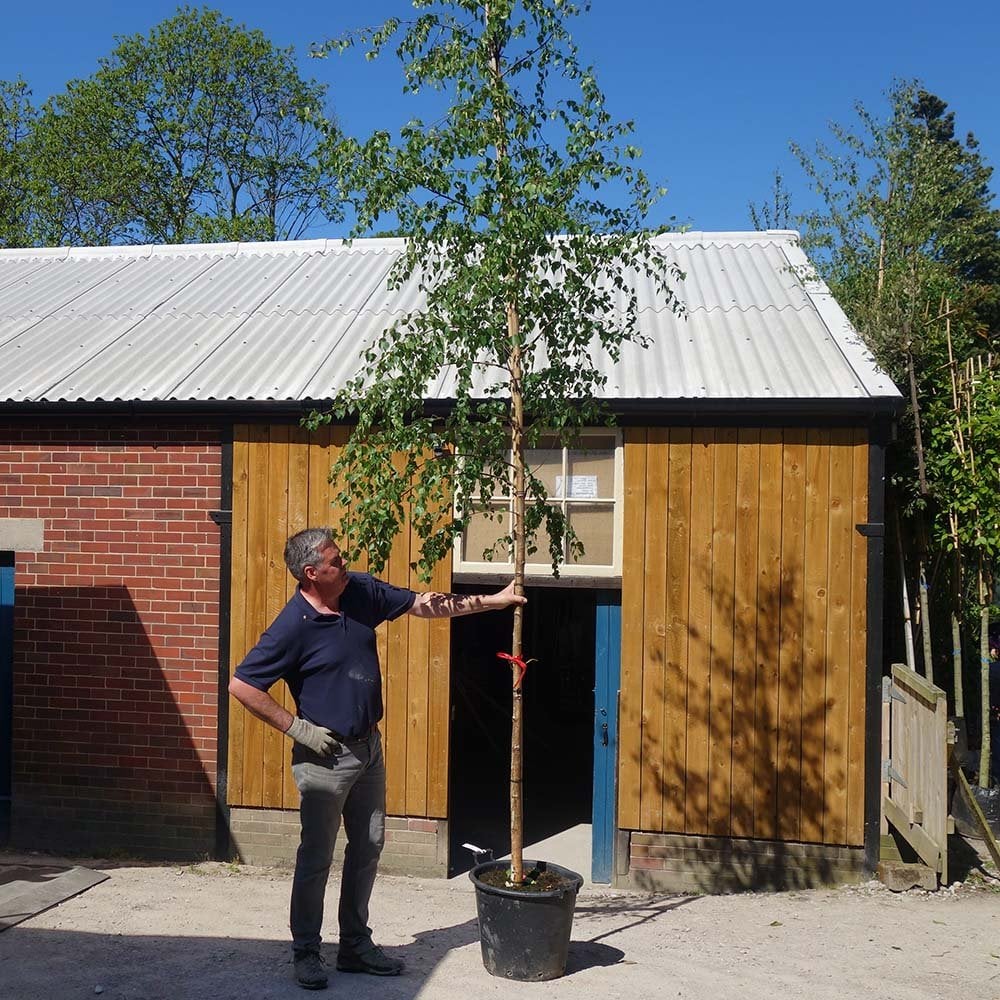
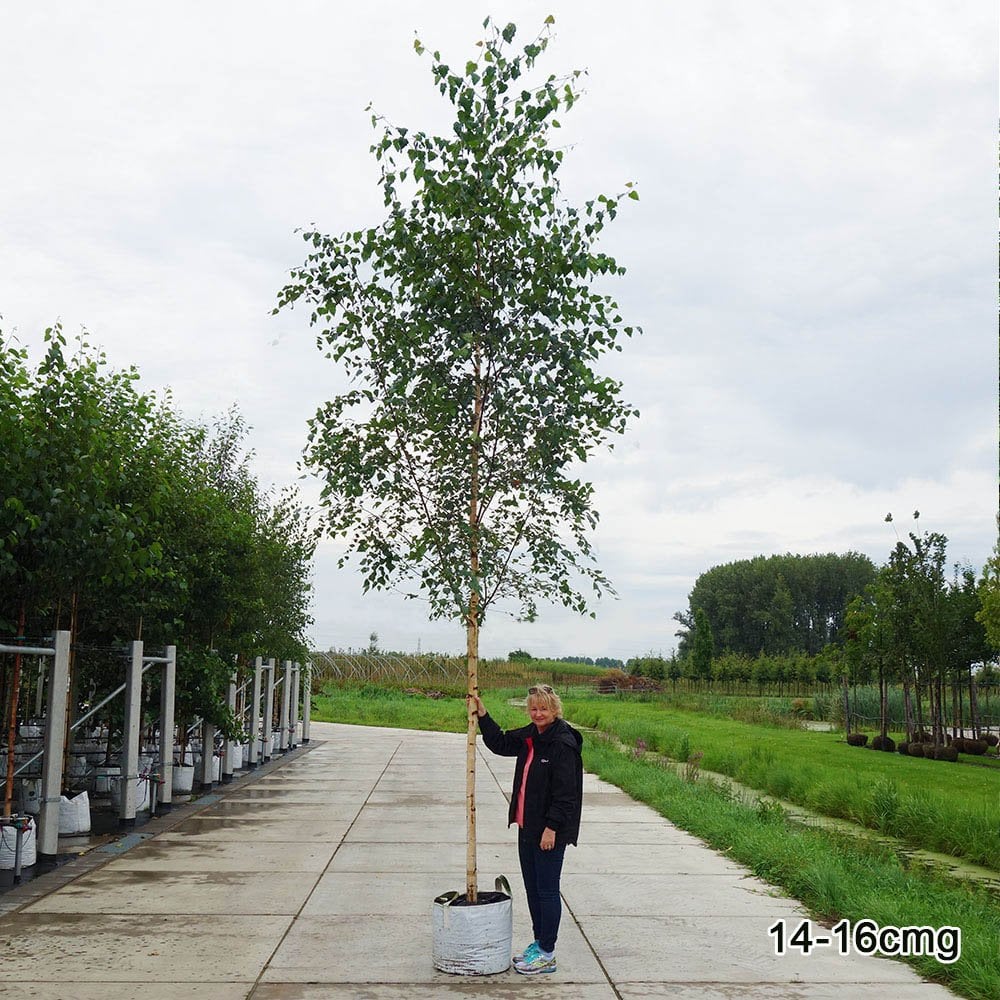
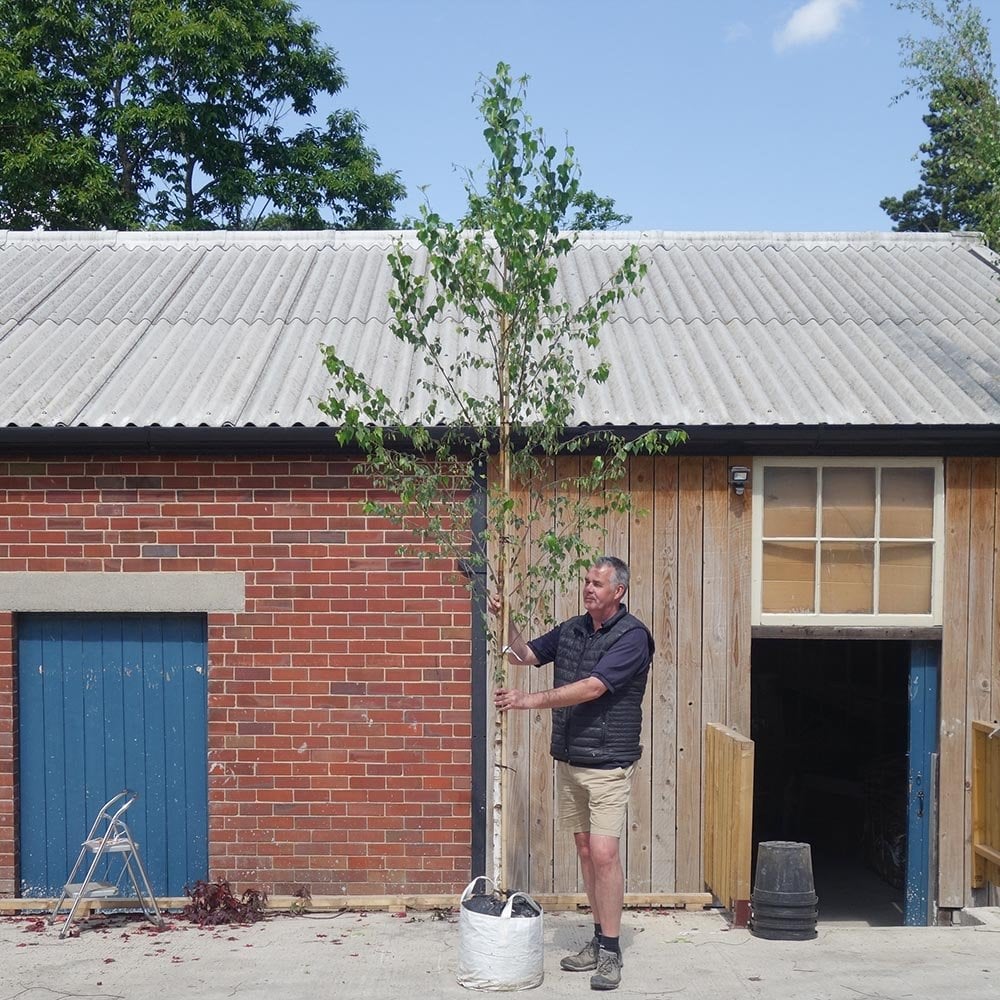
Key features






Description
Betula pendula (Silver Birch) is a popular native tree that makes an impact in any garden with its elegant silver bark and graceful weeping branches. The silver bark develops contrasting dark fissures and cracks with age that add interest and make each tree unique. Betula pendula is also a favourite with wildlife.
Silver Birch has bright green leaves with a serrated edge and are ovate, almost triangular in shape. They provide an airy canopy and in autumn turn buttery yellow. Yellowy-brown catkins develop over winter, with both male and female form on the same tree. The seeds of which are enjoyed by Greenfinch, Redpoll and other birds.
Our native Birch will grow in even the toughest conditions. The tree has a conical shape and will grow to around 7 metres height and 4 metres spread in 20 years. It is ideal planted in gardens or parks where it provides gentle shade.
AKA Common Silver Birch, European White Birch, Lady birch, Betula alba pendula
| Small shrubs (1-3) | Young trees & 4+ small shrubs | Select semi-mature trees & shrubs (1-4) | All other mature trees (any quantity) | |
|---|---|---|---|---|
| Mainland UK ex. Scottish Highlands | £10 | £12 | £35 | from £55 |
| Scottish Highlands & the Islands | From £30 | |||
| Outside Mainland UK | Currently we are unable to deliver outside of Mainland UK | |||
Product Details
Key features






Description
Betula pendula (Silver Birch) is a popular native tree that makes an impact in any garden with its elegant silver bark and graceful weeping branches. The silver bark develops contrasting dark fissures and cracks with...
Betula pendula (Silver Birch) is a popular native tree that makes an impact in any garden with its elegant silver bark and graceful weeping branches. The silver bark develops contrasting dark fissures and cracks with age that add interest and make each tree unique. Betula pendula is also a favourite with wildlife.
Silver Birch has bright green leaves with a serrated edge and are ovate, almost triangular in shape. They provide an airy canopy and in autumn turn buttery yellow. Yellowy-brown catkins develop over winter, with both male and female form on the same tree. The seeds of which are enjoyed by Greenfinch, Redpoll and other birds.
Our native Birch will grow in even the toughest conditions. The tree has a conical shape and will grow to around 7 metres height and 4 metres spread in 20 years. It is ideal planted in gardens or parks where it provides gentle shade.
AKA Common Silver Birch, European White Birch, Lady birch, Betula alba pendula
Planting & Care
Delivery Information
| Small shrubs (1-3) | Young trees & 4+ small shrubs | Select semi-mature trees & shrubs (1-4) | All other mature trees (any quantity) | |
|---|---|---|---|---|
| Mainland UK ex. Scottish Highlands | £10 | £12 | £35 | from £55 |
| Scottish Highlands & the Islands | From £30 | |||
| Outside Mainland UK | Currently we are unable to deliver outside of Mainland UK | |||
MORE TO GROW YOUR GARDEN




















































